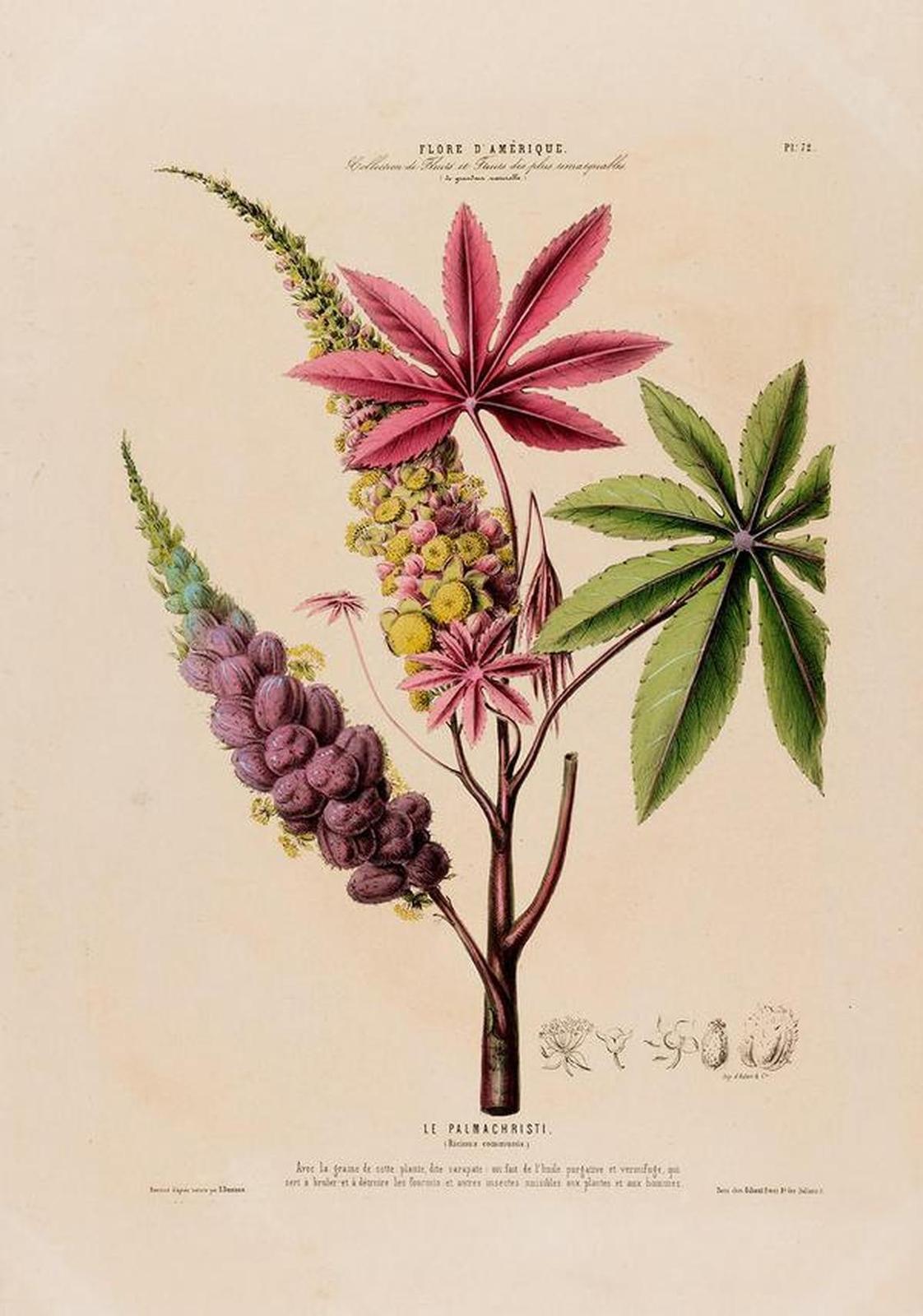Ricinus communis L.
EuphorbiaceaeEl nombre del género alude al parecido de sus semillas con ciertas garrapatas, llamada también ricinus en latín. Conocida por el nombre de croton por autores griegos, como Teofrasto y Dioscórides, sus semillas aparecen en ocasiones en las antiguas tumbas egipcias. Supuestamente originaria del cuerno de África, el ricino está disperso por casi todas las regiones cálidas del globo, habiéndose naturalizado por ser una planta cultivada desde la antigüedad, en parte, a causa de las cualidades farmacológicas e industriales que posee su aceite, si bien, también es conocido por ser altamente tóxico. Su uso en jardinería esta igualmente extendido debido al contraste que se produce entre el verde de las hojas y su floración rojiza. Fácil de encontrar, por tanto, en múltiples jardines de la ciudad o en la rivera del Guadalquivir, su presencia en el Alcázar es testimonial, reduciéndose a un solo ejemplar situado en el jardín Rustico. Espacio, alrededor del cual, se podrá evaluar su fama como eficaz repelente de moscas.
Procedencia
AfricanoCalendario
Hábitat
Morfología
 Arbusto
Arbusto
 Irregular
Irregular
 Simple
Simple
 Palmeada
Palmeada
 Alterna
Alterna
 Dentado
Dentado
 Peltada
Peltada
 Agudo
Agudo
 Perenne
Perenne
